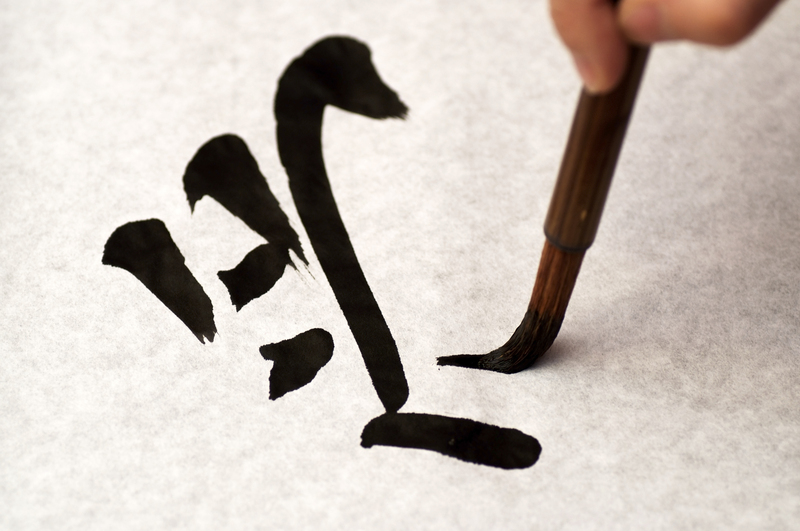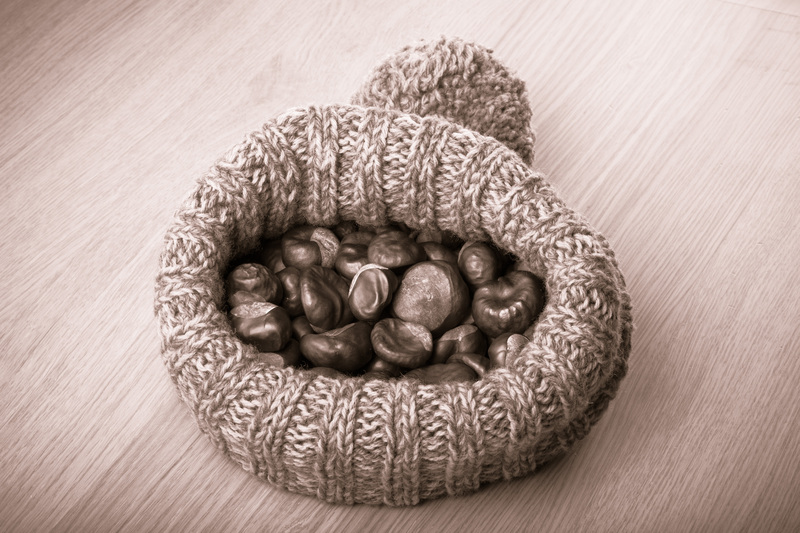The Zen of Tidiness: Stress Reduction Through De-cluttering
Welcome to a transformative journey where organization meets mindfulness. In our modern, fast-paced lives, clutter often accumulates both in our physical surroundings and our mental state. The ancient philosophy of Zen emphasizes simplicity, intentionality, and presence--qualities that can dramatically reshape our relationship with our living spaces and our minds. In this article, we will explore how the Zen of tidiness can help you reduce stress by de-cluttering, and provide practical tips for achieving serenity at home and within yourself.
Understanding the Connection Between Clutter and Stress
Clutter is more than just a visual disturbance. Numerous psychological studies confirm that excessive clutter can:
- Increase feelings of anxiety and overwhelm
- Reduce productivity and the ability to focus
- Disrupt sleep patterns and contribute to fatigue
- Negatively impact relationships with loved ones
But why does clutter have such a profound effect?
The Science of Clutter
Researchers at Princeton University Neuroscience Institute discovered that physical clutter competes for your attention, resulting in decreased performance and increased stress. When your environment is disorderly, your brain constantly processes scattered visual stimuli, leading to cognitive overload.
A calm, organized space, on the other hand, can evoke feelings of clarity, control, and peace--hallmarks of the Zen lifestyle. This insight lays the foundation for a holistic approach to stress reduction through de-cluttering techniques.

What is the Zen of Tidiness?
The Zen philosophy originates from simple, minimalist rituals that promote mindfulness and intentional living. The Zen of tidiness involves reframing tidying up as a meditative process--not just a task to check off. By engaging fully in the present moment, you create a living space that supports tranquility and self-awareness.
- Intentional simplicity: Only surround yourself with items that serve a purpose or spark joy.
- Mindful organization: Bring awareness to every object and its placement in your home.
- Ritualistic maintenance: Develop daily habits of tidiness to nurture lasting calm.
Adopting these Zen-inspired principles can turn routine cleaning into a deeply satisfying, almost spiritual, practice--one that fosters stress reduction through de-cluttering and self-care.
Practical Steps to Achieve Zen-Like Tidiness
1. Start with Mindfulness
Before you reach for cleaning supplies or storage bins, pause and ground yourself.
- Breathe deeply and set an intention for your de-cluttering session.
- Observe your environment without judgment. Notice how different spaces make you feel.
- Invite gratitude for the possessions you have--then decide which ones truly enrich your life.
2. Declutter by Category, Not Room
Inspired by organizing experts like Marie Kondo, tackle your belongings by category (clothes, books, papers, etc.), not just by room. This approach reveals how much you truly own, makes decision-making easier, and prevents items from migrating unnoticed between rooms.
3. The "One-In, One-Out" Rule
Maintain a minimalist environment by living mindfully: For every new item you introduce, let go of an old or unused one. This prevents clutter from accumulating and keeps your belongings meaningful and up-to-date.
4. Designate a Place for Everything
Order creates calm. Assign a home for every item in your space, ensuring nothing is left adrift. When everything has its place, tidying becomes effortless and automatic--a true mark of Zen living.
5. Embrace the Power of Empty Spaces
In Zen aesthetics, negative space (known as "Ma" in Japanese) is as valuable as filled space. Don't feel compelled to fill every shelf, corner, or surface. Allow blank spaces to act as restful pauses for your eyes and your mind, cultivating an overall sense of spaciousness and calm.
Psychological Benefits of Tidying Up
Embracing the Zen of tidiness and reducing stress through de-cluttering unlocks a trove of psychological benefits:
- Enhanced Mental Clarity: Fewer distractions mean greater focus and productivity.
- Elevated Mood: An organized space fosters feelings of accomplishment and positivity.
- Reduced Anxiety: Visual tranquility translates to emotional calmness.
- Better Sleep: A serene environment, especially in the bedroom, can lead to more restful nights.
- Improved Relationships: Shared rituals of tidiness strengthen bonds and reduce household tension.
The Ripple Effect on Daily Life
As you simplify your environment, you'll often notice:
- Time saved searching for lost items
- Freedom to focus on what truly matters
- Greater creativity and energy
- Motivation to care for yourself in other ways, such as healthy eating or exercise
Ultimately, the Zen of de-cluttering offers more than an aesthetically pleasing home--it is a gateway to a healthier, happier lifestyle.
The Zen Mindset: Integrating De-cluttering into Daily Life
To fully harness the stress-relieving power of decluttering, it's important to move beyond sporadic deep cleans. A Zen approach encourages regular, ritualistic practices that reinforce mindfulness and intentionality:
Morning and Evening Routines
- Spend a few minutes each morning tidying up your main living area.
- End the day by putting away stray items, setting a calm tone for restful sleep.
The Five-Minute Rule
Too busy to tidy? Set a timer for five minutes and clear just one surface--your desk, kitchen counter, or coffee table. Small, consistent efforts add up to big results over time.
Monthly Purge Rituals
Block out an hour each month to review clutter hotspots such as closets, junk drawers, or mail piles. Consistency prevents overwhelm and keeps your space from reverting to chaos.
The Emotional Side of Letting Go
De-cluttering isn't always easy. Often, clutter holds emotional significance--memories, hopes, or even guilt. In true Zen fashion, approach these items with compassion and acceptance:
- Honor the memories attached to sentimental items, then let go if they no longer serve you.
- Recognize that attachment to material objects can sometimes reflect deeper emotional needs.
- Practice self-forgiveness if you find it hard to part with things.
Every item you release frees up not just physical space but also mental energy--offering an invitation for new experiences, clarity, and peace.
Making Decluttering a Family Affair
Stress reduction through tidiness isn't limited to individual pursuits. Sharing the Zen of de-cluttering with your household can strengthen family bonds and set healthy habits for life:
- Hold regular "house reset" sessions where everyone helps tidy up together.
- Model mindful decision-making for children; involve them in letting go of toys or clothes outgrown.
- Celebrate milestones--like donating to charity--as positive, collective achievements.
Turning tidiness into a shared ritual transforms it from a chore into a bonding experience, reinforcing the value of peace and harmony for all members of the home.
Decluttering Beyond the Home: A Zen Approach to Digital Life
In today's digital age, virtual clutter also contributes to stress. Overflowing inboxes, unorganized files, and constant notifications can drain your focus. Apply the Zen principles of tidiness to your tech life:
- Regularly clear out unwanted emails, files, and apps.
- Unsubscribe from newsletters or notifications that no longer bring value.
- Create folder systems for important digital documents, mirroring your physical organization for seamless synergy.
Reducing digital clutter brings the same peace and clarity as de-cluttering your physical surroundings, supporting overall wellbeing.
The Rewards of a Zen-Like Home
When you cultivate the Zen of tidiness, your home becomes a true sanctuary--a restorative retreat from the noise of everyday life. Imagine:
- Entering a space where every item serves a purpose or sparks joy
- Relaxing into surroundings that echo your values and aspirations
- Feeling empowered to invite friends and loved ones over without hesitation
- Experiencing deeper self-knowing through intentional living
These rewards amplify your ability to manage life's stresses, making calm and comfort your everyday reality.

Frequently Asked Questions: Zen Tidiness and Stress Relief
Q: How does de-cluttering reduce stress?
Physical clutter triggers the brain's stress response and makes it difficult to relax. De-cluttering calms the senses, reduces visual noise, and creates an atmosphere conducive to focus and rest.
Q: I get overwhelmed by clutter. How do I begin?
Start small--pick one drawer, shelf, or category. Set a timer for 10-15 minutes, and do only what you can in that time. Progress, not perfection, is the Zen way.
Q: What if family members are resistant?
Lead by example. Share how a tidy space positively impacts your own mood and stress. Invite, but don't force, others to join in the process. Over time, positivity is contagious.
Q: Can decluttering help with anxiety or depression?
While it's not a cure-all, many find that tidying up alleviates certain symptoms by providing structure and a sense of achievement. If you're struggling, always consult with a healthcare professional for support.
Conclusion: Embrace the Zen of De-cluttering for a Calmer Life
In a world filled with distractions and demands, the Zen of tidiness offers a path toward balance, clarity, and profound stress reduction. By adopting mindful, intentional de-cluttering habits, you create not just a tidy home but also an inner sanctuary of peace and purpose. Remember, every act of organization is an act of self-care.
Start your journey toward Zen-inspired living today--one item, one surface, one mindful moment at a time. Experience firsthand the transformative power of a life less cluttered and discover the tranquility that awaits on the other side.